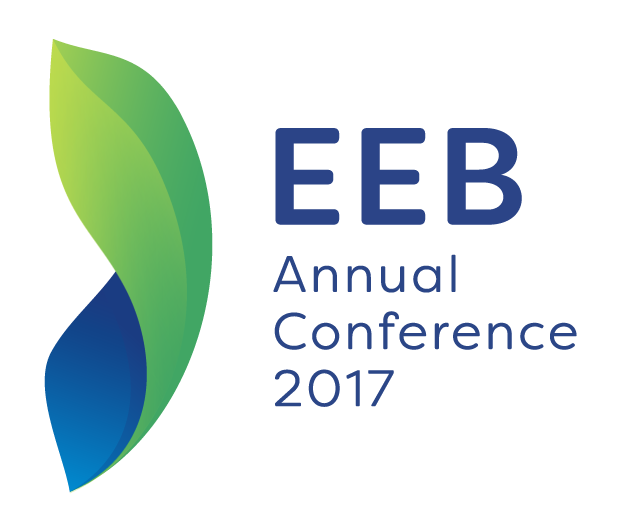

About the conference
In the midst of the political discussions on the future of an EU of 27 Member States and the relationship that the future EU might have with the UK, the European Environmental Bureau will hold its annual conference in Edinburgh, to debate how to put people and planet central in these uncertain times for the EU, the UK and Scotland.
The Brexit vote in June 2016, followed by the UK government letter triggering Article 50 in March 2017, represented the most significant development in the evolution of the European Union since its inception. For many it was not just a political event but an emotional experience, challenging identities formed over decades, even through lifetimes, with reactions ranging from devastation to exhilaration. Across the Atlantic, the Brexit vote was followed by the Trump election victory and the subsequent announcement that the US would withdraw from the Paris Agreement, reversing the hard-won progress in bringing the US in line with the growing consensus on the need for urgent action on climate change. Even if earlier fears that these landmark events would be followed by similar results in the elections in e.g. the Netherlands, France and Germany have been allayed, the political uncertainty can be expected to continue for several years.
The rise of Euroscepticism in many EU countries has raised fundamental questions about the identity and purpose of the EU. Some have argued that too much interference by the EU in national and local affairs is to blame for its unpopularity and that deregulation would placate the Eurosceptics. Others point out that Cameron’s ‘less Europe’ settlement package failed to persuade UK voters and argue that many EU laws bring direct and practical benefits to ordinary citizens, protecting the environment, public health, consumers and workers among others.
One thing that is clear, confirmed by successive polls, is that a large majority of Europeans value the EU’s role on environmental matters and want to see more EU action on the environment. Despite this, and despite the fact that as recently as 2015, European governments signed up to the global 2030 Agenda for Sustainable Development with its 17 Sustainable Development Goals, environment and sustainability have barely featured in the recent debates among EU leaders on the future direction of Europe.
More than ever, the EU needs a positive narrative to counter the spread of populist narratives based on fear and division. Sustainable development should be the overriding theme of that narrative, with environment enjoying a centre-stage position. The rise of President Trump and his appointment of what is undoubtedly the most anti-environmental US cabinet in living memory has made European leadership on the environment more important than ever.
The EEB conference will address these issues as well as explore a number of related questions: How can we ensure that environmental protection will not be negatively affected by the ongoing negotiations? Will access to EU markets be made conditional on the UK agreeing to be bound by the EU’s present and future environmental laws? How will environmental policy fare in a post-Brexit Britain? And in Scotland, whose population voted 62% for ‘remain’?
These questions are not posed or answered in a vacuum. Whatever the nature of the relationship the EU and UK will have, both the EU and the UK, including the Scottish Government, are committed to the implementation of the world’s Sustainable Development Goals as well as the Paris Agreement and the path of transformational change that these instruments imply.
This year’s conference will bring together members of the environmental movement from across the EU, the UK and Scotland, together with policy makers, civil society and thought leaders as well as entrepreneurs to debate shared challenges and opportunities in fighting climate change, re-orienting public spending and investment, undertaking a deep reform of agriculture policies and safeguarding our marine environment. It will draw on examples of the way these issues have arisen and been addressed in Scotland.
About the European Environmental Bureau (EEB)
Set up in 1974, the EEB is Europe’s largest network of environmental citizens’ organisations, bringing together around 140 civil society organisations from more than 30 European countries (virtually all EU Member States plus some accession and neighbouring countries), including a growing number of European networks, with a combined membership of an estimated 15 million people.
About Scottish Environment LINK
Established in 1987, LINK is the forum for Scotland’s voluntary environment community, with over 35 member bodies representing a broad spectrum of environmental interests with the common goal of contributing to a more environmentally sustainable society. Collectively these organisations represent half a million people. LINK works with allies in Scotland and with sister Links and other networks in England, Wales and Northern Ireland and is a member of the EEB and IUCN. LINK is a Scottish charity (SC000296) and Scottish company (SC250899).
Organizers: European Environmental Bureau (EEB) and Scottish Environment LINK
The organizers gratefully acknowledge the financial support from the LIFE Programme of the European Union, the Scottish Government Environment and Forestry Directorate, the Scottish Government Energy and Climate Change Directorate, the Scottish Environment Protection Agency, Historic Environment Scotland and Scottish Natural Heritage.
This website reflects the organizers’ views and does not commit the donors.